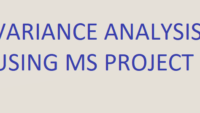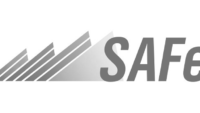Interviewing itself is a daunting task. And if you are interviewing for a startup, it’s altogether a different and difficult story. In terms of both the questions being asked, the expectations and definition of the role and duties, it is a little overwhelming for the candidate. There are a lot of things that are unknown for the company itself and hence the conversation with the hiring manager would be very different from the earlier interviews you may have. Especially when you are coming from a background of working for a large process oriented company where there is a mature PMO process and the roles are clearly defined and delineated.
Here are some reasons why the interviews with the startup companies are different and what to expect during such interviews so you can be successful with those interviews.
Expect Unclear Job Descriptions
The title and the job descriptions are not clear and also don’t match with each other. For example, if they needed a Product Manager/Business Analyst, they can title is as Technical Manager. And then if you read the description, you will understand that the duties outlined will be different when you compare with the title. Sometimes, the description also asks for things or mentions duties that they necessarily don’t desire or need from the candidate which you would not be able to find out until an interview is called for and a conversation is established. So, it is better to apply to those jobs even though the duties differ from the title and the work you have done in the past. And also keep this in mind when answering questions during the interview. Another point to note is that they most likely are expecting you to wear more than one hat when working with them. As they are starting up and growing, they look for diverse experience and expertise so they don’t have to fill every single role that they might need as they progress along.
Unconventional Communication Style
In terms of communicating the needs and the interview timings, you may also notice gaps. Certain times one manager(we assume it is the hiring manager or the HR person, but sometimes, none of them email you) emails and a follow up is being done by a different person. And also note that the titles aren’t given in the signatures of the emails nor an introduction is done. So, it is advisable to put these questions forward when responding to an email. And once the interview time is agreed and confirmed, you can also expect they may not keep the time. They could change on you during the last minute and reschedule.
Interviewing style
The pattern of questions and the organization of the conversation is a challenge, sometimes. The interview for a Project Manager role is being held by a developer or someone that actually turns into some sort of technical manager from a development role. When they ask questions, they are not geared toward project management related activities and furthermore they would not be able to fully comprehend your responses. So, keep that in mind when you are answering for those questions. Also, they repeat questions until they hear what they expect to hear certain specific response/keywords from you.
Understanding PM Tools
You will get questions on what tools you have used for your PM activities and if you have worked for a well established large company you would use standard tools like Clarity RPM, Microsoft Project etc. But the startups typically use PM software that is less priced and fulfills the needs of the company. So, research on those tools for both waterfall and agile models before taking up the call with them.
These are some factors to consider when interviewing for a startup company. There are mutual benefits for both the candidate and the organization if they can work together. However, it’s a journey that is altogether different from working with fortune companies or well-established organizations.
Hope this article helps you get the perspective before you attend interviews with a company that is starting up or small and does not have an established process yet.






